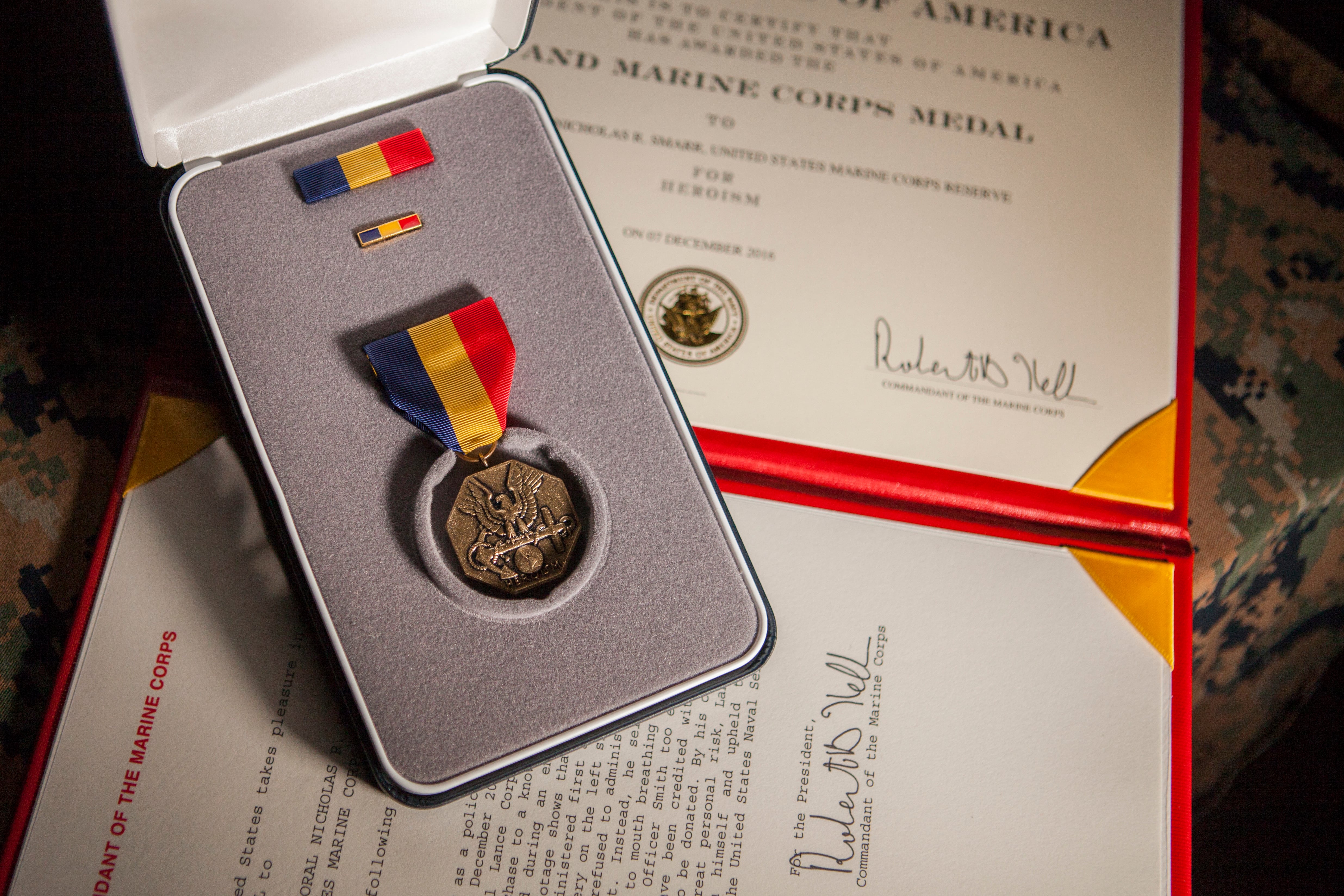The air crew informed their Marines that the Osprey was taking place.
Capt. Joshua Watson, practically two dozen different Marines and a sailor braced for influence.
Watson shoved his radio operator into the brace place earlier than defending himself. All the things not strapped down turned a projectile, he would later observe in his report on the incident, shared on “The Connecting File,” a Substack.
Then, the plane crashed. Gasoline leaked out of its body, which ignited and unfold hearth throughout.
Watson served as the bottom power commander for the 38-Marine factor that was inserting into Pickertaramoor Airfield on Melville Island, about 45 miles north of Darwin, Australia, throughout an train Aug. 23, 2023.
After the crash that day, Watson unstrapped and shook the unconscious radio operator awake.
“I couldn’t see the Marine seated 5 ft throughout from me, nor might I see out of the rear ramp of the plane,” Watson wrote. “Heavy flames, thick smoke, spraying fluid, grime, mud, gear, and plane wreckage made visibility extraordinarily poor.”
Amid the wreckage, the captain freed the man Marine from his restraints and received him out of the plane.
“The warmth from the hearth was overwhelming,” Watson wrote. “The one gentle piercing by means of the smoke got here from the rear of the plane and this quickly turned the first exit.”
What he did subsequent resulted in Watson receiving the Navy and Marine Corps Medal — the very best noncombat naval service award — in a ceremony at Naval Air Station Pensacola, Florida final month.
“After noticing that no person was actually shifting, I directed the Marines to, ‘Depart every little thing and get out the again of the plane,’” Watson in a Marine launch. “As I unstrapped and untangled myself, I handed off my radio operator to a different Marine in the direction of the rear exit, checking underneath seats as I went to make sure nobody remained trapped.”
As soon as outdoors the plane, Watson did a head rely, checking for all of the people aboard.
He had one pressing casualty and a number of other precedence casualties. Three folks have been lacking — two pilots and the crew chief.
“As soon as I spotted we hadn’t gotten accountability of these three Marines, my first thought was to try to find them,” mentioned Watson. “Nonetheless standing on the rear of the plane from which the hearth was quickly spreading, I witnessed the rear member of the aircrew who was pinned beneath the fuselage of the aircraft and severely injured, being reduce free and buddy-dragged to security by my Marines who had come again to his rescue.”
A subsequent investigation said that Cpl. Spencer Collart, one of many lacking, survived the influence. Nevertheless, Collart died whereas attempting to succeed in the Osprey’s pilots who have been trapped within the cockpit.
Investigators reported that the 2 pilots, Maj. Tobin J. Lewis, 37, and Capt. Eleanor V. LeBeau, 29, have been possible already useless. Collart was awarded the Navy and Marine Corps Medal posthumously.

Minutes after the crash, Watson radioed a piece of AH-1Z Viper and UH-Y1 Venom helicopters overhead. The captain offered triage assessments, accountability and a casualty transient.
“Luckily, we had these Marine helicopters above, as a result of we wouldn’t have been in a position to begin getting casualty assets to our place if that wasn’t the case,” Watson mentioned. “They have been our lifeline.”
Combating by means of the ache of a damaged ankle, Watson led his Marines by means of two kilometers of wooded terrain to the airfield. The captain continued directing the Marines in his command, offering real-time updates till they reached some extent at hand off the casualties, which included one pressing surgical and 4 precedence casualties, based on the discharge.
“Nearly everybody was injured within the crash, however we didn’t understand the severity because of the shock, we saved checking on one another as a result of we didn’t know the true circumstances of everybody,” Watson mentioned. “Self-aid was vital, my Marines being stable in Tactical Fight Casualty Care was important to reduce the lack of life.”
Todd South has written about crime, courts, authorities and the navy for a number of publications since 2004 and was named a 2014 Pulitzer finalist for a co-written undertaking on witness intimidation. Todd is a Marine veteran of the Iraq Struggle.










:quality(70)/cloudfront-us-east-1.images.arcpublishing.com/archetype/4GX3EMIJJNC3DMQKVRDLGXGROQ.jpg?w=120&resize=120,86&ssl=1)










